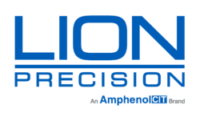Using Capacitive and Ultrasonic Sensors to Detect Clear Labels
| Optical sensors use a beam of light, often infrared, which can penetrate the liner but is blocked by the label material. |  |
| Ultrasonic sensors like the LRD8200 use high-frequency sound waves to sense the thickness of the web. |  |
| Differential capacitive sensors like the LRD2100 use two sensing elements to detect gaps. The sensor only triggers when there is a difference between the two sensing elements. |  |
| A single-ended capacitive sensor (LRD6300) has a single sensing element that measures the thickness of the web. Capacitive sensors are so sensitive to small changes in dielectric (thickness) that even very thin labels are easily detected. |  |
CLEAR LABELS Cannot be detected by traditional optical sensors. Optical sensors do not “see” the edge of the label since the light passes through the label unobstructed. Sometimes “eye marks” are added to the liner – black bars between the labels. The cost of eye marks is much greater than the cost of a sensor capable of sensing clear labels. In addition to their inability to sense clear labels, optical sensors can have registration errors when used at very high speeds.
LION PRECISION INTRODUCED the world’s first clear label sensor, the LRD2100, in 1995. The LRD2100 is a differential capacitive label sensor, which means that it works on clear labels, as well as paper labels. However, the LRD2100 has trouble sensing labels with high-carbon black ink. In these situations, the LRD6300 is a better choice for capacitive label sensing, because it uses single-ended capacitive sensing technology. The LRD6300 is very easy to use. After powering the sensor up, the user usually pushes only one button, and then the sensor is ready to go. The LRD6300 works with all labels except those containing solid metal foil. For labels containing solid foil, the LRD8200 is the best choice. The LRD8200 uses ultrasonic, high-frequency sound waves to detect labels. It works with virtually all label types, but because of the nature of the technology, its accuracy is directly related to web speed and does decrease some at very at high web speeds.




